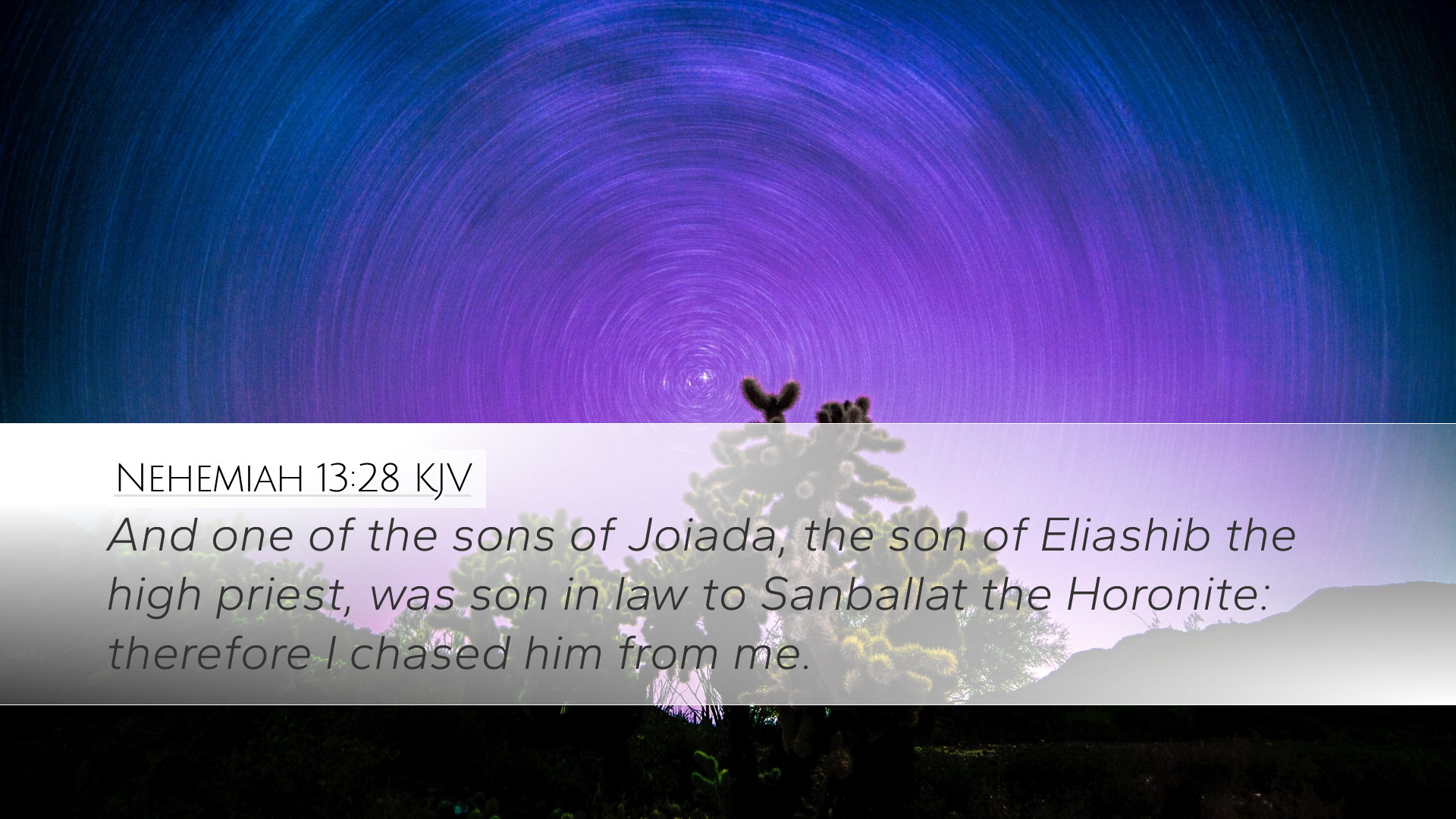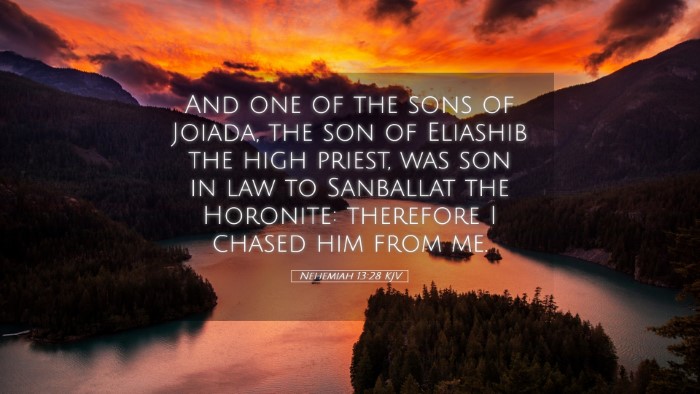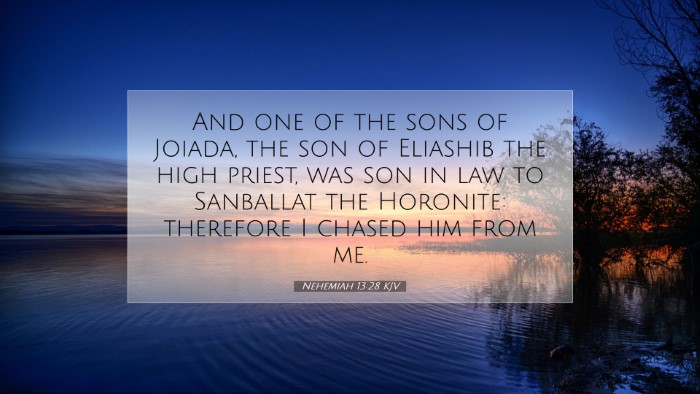Commentary on Nehemiah 13:28
Nehemiah 13:28 states: "And one of the sons of Joiada, the son of Eliashib the high priest, was son-in-law to Sanballat the Horonite: therefore I chased him from me." This verse provides a crucial insight into the challenges Nehemiah faced during his leadership and reformative efforts in Jerusalem.
Historical Context
To fully understand this passage, it is essential to consider the historical backdrop. Nehemiah's return to Jerusalem was driven by a desire to rebuild the walls and revitalize the spiritual lives of the Jewish people after the Babylonian Exile. His opposition, particularly from figures like Sanballat, highlights the tension between the returning exiles and those who had settled in the land during the Babylonian captivity.
Exegesis of the Text
This verse illustrates a significant conflict of interests. The mention of Joiada's son being related by marriage to Sanballat emphasizes the infiltration of alliances that could undermine Nehemiah's reforms.
Key Insights from Commentaries
-
Matthew Henry's Commentary:
Henry reflects on the seriousness of the situation, noting that the progeny of the high priest had formed alliances with those opposed to the Jewish restoration. He emphasizes the purity that Nehemiah sought for the priesthood and leadership, advocating for a separation from corrupt influences.
-
Albert Barnes' Notes:
Barnes highlights the familial connections that could corrupt religious and political integrity. He points out that Nehemiah's decision to distance himself from Joiada's son was a necessary act of purification. It was not merely an act of personal dismissal but rather a move to protect the sanctity of the community’s leadership.
-
Adam Clarke's Commentary:
Clarke delves into the implications of such a familial bond with Sanballat. He notes that alliances could compromise loyalties to God and the covenant community. Clarke urges the importance of maintaining spiritual integrity, as opting for moral purity was essential for any leader, particularly in Nehemiah's context of rebuilding Jerusalem both physically and spiritually.
Thematic Implications
The event narrated in Nehemiah 13:28 serves several deeper themes:
-
The Challenge of Leadership:
Nehemiah's leadership was constantly tested by internal and external threats. The need for discernment in relationships is a consistent theme in scriptural leadership models.
-
Purity and Integrity in Worship:
Nehemiah's reaction illustrates the necessity of maintaining purity in worship and leadership. The priesthood, as an example, must be free from corrupting influences, enabling them to lead the people in truth and righteousness.
-
Opposition to God's Work:
This verse signifies the broader opposition found throughout the narrative of Nehemiah. Sanballat represents the worldly opposition to God's plans, and thus, Nehemiah's rejection of the ties to him is symbolic of rejecting worldly influences that oppose divine work.
Lessons for Today
For modern-day pastors, theologians, and scholars, this passage offers multiple valuable lessons:
-
Discernment in Relationships:
Leaders must be discerning about whom they ally with, especially when these relationships can compromise their calling or mission.
-
Commitment to Spiritual Purity:
The passage reflects the urgency of maintaining integrity and purity in all church leadership to uphold the community’s faith.
-
Resilience Against Opposition:
Nehemiah’s steadfastness inspires current leaders to stand firm in their values and resist influences that might lead them astray from their commitments to God.
Conclusion
Nehemiah 13:28 not only serves as a historical account of a leader's actions but also as a profound lesson in the integrity required for spiritual authority. The commentary from esteemed biblical scholars reaffirms the significance of purity, discernment, and resilience—qualities that remain essential for today’s church leaders tasked with navigating complex social and spiritual landscapes.


